Petrochemicals CrudeOil CarbonFiber 21-07-2020 - Arhive
Petrochemicals CrudeOil CarbonFiber
Crude Oil Prices Trend

-Life Cycle Initiative launches report on single-use plastic bottles
Single-use plastic bottles and their alternatives — Recommendations from life cycle assessments
Plastics is used for producing some of the most common types of beverage bottles. It has been estimated that about one million plastic bottles are sold globally every minute (Plastic Soup Foundation, 2020). The environmental impact of single-use plastic bottles has been widely discussed in society. For example, they are among the top single- use plastic products that have been found on beaches (DIRECTIVE (EU) 2019/904, 2019).
The report summarises current knowledge about single-use plastic bottles and alternatives that could potentially replace them from a functional and transportation point of view. The following alternatives are considered: glass bottle (single-use), aluminium can (single-use), carton laminated packaging systems (single-use), reusable steel and aluminium bottles, as well as non-container means for providing drinking water (see table below). Reusable glass bottles were considered in one study only as part of sensitivity analysis.
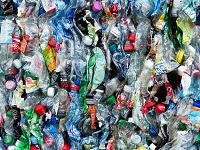
-Coca-Cola European Partners investment builds on recycled plastics goal
Coca-Cola European Partners (CCEP) has invested in recycling start-up CuRe Technology, as part of its journey towards making all its packaging 100% recyclable.
The funding has been provided through the CCEP Ventures innovation investment fund. The venture will help CuRe accelerate its ‘polyester rejuvenation’ technology from pilot plant to commercial readiness – at which point CCEP will receive most of the output from a newly built, CuRe licensed plant.Petrochemicals CrudeOil CarbonFiber
Once fully operational, CuRe will use its partial depolymerisation recycling process to transform opaque and difficult to recycle food grade polyethylene terephthalate (PET) to high-quality recycled PET (rPET).
Head of sustainability Nick Brown told Food Manufacture the process would remove impurities such as coloured pigments, then repolymerise or ‘rejuvenate’ the material into clear pellets of the same grade and quality as virgin oil-based PET.
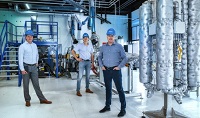
-UTT installs state-of-the-art finishing line for airbag fabrics
UTT, a subsidiary of the Thai chemical group Indorama Ventures (IVL), and renowned manufacturer of technical fabrics, has recently installed a state-of-the-art textile finishing line for airbag fabrics. Petrochemicals CrudeOil CarbonFiber
The original UTT weaving mill was founded at its current location in Krumbach, Germany, way back in 1850. Over the years the UTT’s manufacturing focus has shifted from initial production of parachute fabrics to that of technical textiles and especially airbag fabrics. Making airbags is a multi-stage, precisely coordinated complex process, ranging from warp production to laser cutting and UTT’s own high standards demand the highest quality, finished with state-of-the-art technology.
In order to develop its key role in this important and innovative market of the automotive industry, UTT has significantly expanded its production capacity for technical dobby and jacquard fabrics at the Krumbach site. Not only was an investment made in an additional production building with new weaving machines, but also one of the world’s most modern and innovative textile finishing lines for airbags has recently been installed.
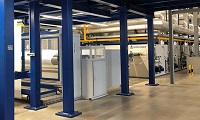
-Advanced Recycling of Polystyrene in a Sustainable, Closed-Loop System
INEOS Styrolution works to bring advanced recycling of polystyrene to a commercial scale with help of partners for a more sustainable, circular-economy-driven future.
What if you could take leftover chocolate cake and recover the flour from it in a pure, clean form? You could then take that flour and make a new cake, or you could make bread, pasta, or lemon bars.Petrochemicals CrudeOil CarbonFiber
In fact, you could repeat this process over and over, utilizing the same supply of flour for all your baking needs — a circular economy of flour!
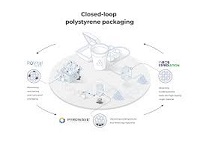
-EPCA to seek additional revenue streams if social distancing persists – CEO
Current social distancing measures make impossible to organise EPCA’s annual convention, which represents the industry group’s key revenue stream, and if the current situation persists it would need to consider alternative income channels, its CEO said to ICIS.
Although the physical annual event in October has been cancelled, EPCA’s intention is to continue bringing together European petrochemicals players through an application and virtual events coinciding with the dates for the annual event, initially planned for October in Budapest.Petrochemicals CrudeOil CarbonFiber
EPCA’s CEO Caroline Ciuciu also said the group intends to continue organising face-to-face gatherings, perhaps on a smaller scale, when social distancing measures allow it.
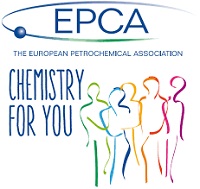
-India petchems recovery uncertain on Covid-19 surge
The rapid spread of India’s Covid-19 outbreak is threatening to slow the recovery in some key downstream sectors in the petrochemical chain, adding to steep losses earlier this year.Petrochemicals CrudeOil CarbonFiber
Coronavirus cases are surging in India, hitting 1mn late last week and prompting some state governments to impose new restrictions on economic activity.
“I am afraid that lockdowns will spread in several parts of the country and that will again impact transport and production,” said a Mumbai-based aromatics trader. Lockdowns have been imposed in parts of states including Tamil Nadu, Kerala, Uttar Pradesh, Maharashtra in recent days.
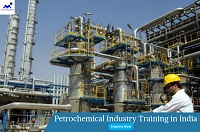
-Report suggests for UK to go for energy-from-waste
A new report says prioritising energy-from-waste policy to 2025 will cut costs and carbon for UK taxpayers in a “win-win” for economic & environmental recovery.
The report from UK think-tank Policy Connect argues that diverting the UK’s 27.5m tonnes of residual (‘non- recyclable’) waste for green heat is better for the economy and the environment than current solutions of overseas export or landfill. Petrochemicals CrudeOil CarbonFiber
It finds widespread deployment of energy-from-waste (EfW) plants across UK regions is needed to deliver a coherent circular and sustainable waste policy that heats and powers UK homes and avoids expensive shipping of waste abroad, and carbon intensive landfill.

-Polyplastics concentrates DURANEX (R) -PBT types on applications in autonomous driving
While the automotive industry is making a major shift towards electric vehicles, Polyplastics Co., Ltd., a world leader in engineering plastics, sees great potential in its innovative resin products for components in Advanced Driver -Assistance systems (ADAS) that enable autonomous driving. The company’s DURANEX (R) -PBT materials, which are intended for drive elements and communication devices, offer high durability, alkali resistance, hydrolysis resistance and thermal shock resistance.
In drive-by-wire systems, the actuator requires a higher level of reliability because the ADAS parts are becoming more sophisticated and electronic controls are automated. DURANEX (R) PBT from Polyplastics is used in many electrical actuator parts because it maintains its performance even in harsh environments. Petrochemicals CrudeOil CarbonFiber
Underbody parts are exposed to water and snow melt from road surfaces as well as oil and other substances. These parts also heat up because they are close to the engine, travel drive, and other heat-generating parts. Therefore PBT is selected for many actuator parts due to its high heat resistance, its excellent chemical resistance and its low water absorption rate.
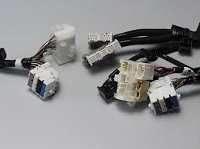
-CCEP invests in creation of circular economy for PET in Western Europe
Coca-Cola European Partners (CCEP), the world’s largest independent Coca-Cola bottler, has taken an important step on its journey towards 100% rPET for its plastic bottles by funding CuRe Technology – a recycling start-up which seeks to provide a new lease of life for difficult to recycle plastic polyester waste. Petrochemicals CrudeOil CarbonFiber
The funding from CCEP, through its innovation investment fund, CCEP Ventures, will enable CuRe to accelerate its ‘polyester rejuvenation’ technology from pilot plant to commercial readiness. Once the technology is commercialised, CCEP will receive the majority of the output from a CuRe-licensed, new-build plant.
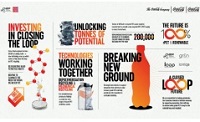
This press release was orginally distributed by SBWire
Prismane Consulting is pleased to publish its Global Biodegradable Plastics Market Study Report and Techno-Commercial Market Model.
This report forms a part of the Bio-plastics Strategy studies recently published by Prismane Consulting.Petrochemicals CrudeOil CarbonFiber
The global demand for bioplastics was estimated to be over 2 million tons in 2017. Currently, biodegradable bioplastics account for around 45% of the global bioplastics market. Major biodegradable plastics include polylactic acid (PLA),
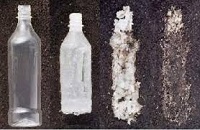
Petrochemicals CrudeOil CarbonFiber
